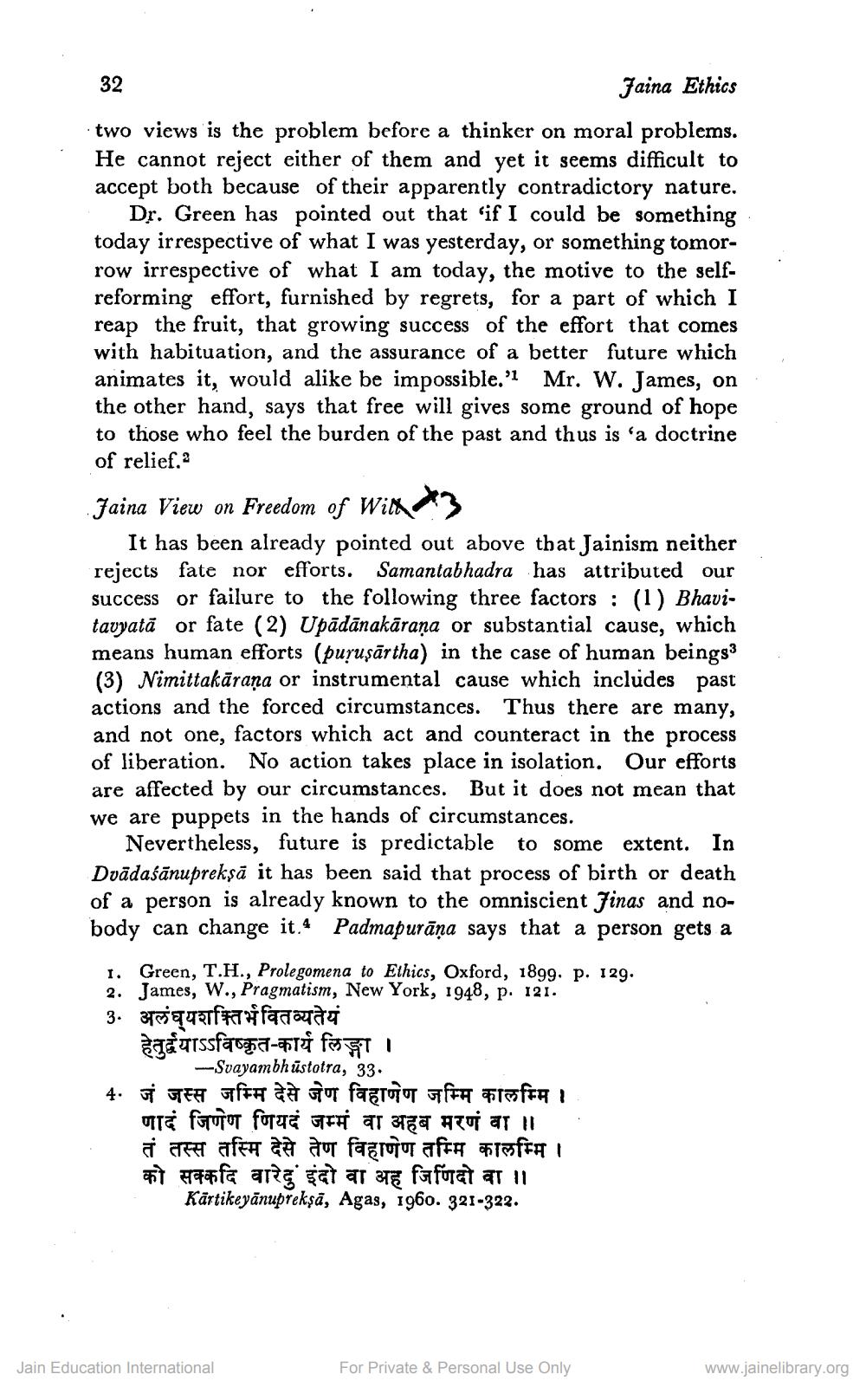________________
32
Jaina Ethics two views is the problem before a thinker on moral problems. He cannot reject either of them and yet it seems difficult to accept both because of their apparently contradictory nature.
Dr. Green has pointed out that 'if I could be something today irrespective of what I was yesterday, or something tomorrow irrespective of what I am today, the motive to the selfreforming effort, furnished by regrets, for a part of which I reap the fruit, that growing success of the effort that comes with habituation, and the assurance of a better future which animates it, would alike be impossible.'1 Mr. W. James, on the other hand, says that free will gives some ground of hope to those who feel the burden of the past and thus is 'a doctrine of relief. Jaina View on Freedom of Wirts
It has been already pointed out above that Jainism neither rejects fate nor efforts. Samantabhadra has attributed our success or failure to the following three factors : (1) Bhavitavyatā or fate (2) Upādānakāraña or substantial cause, which means human efforts (puruṣārtha) in the case of human beings3
(3) Nimittakāraņa or instrumental cause which includes past actions and the forced circumstances. Thus there are many, and not one, factors which act and counteract in the process of liberation. No action takes place in isolation. Our efforts are affected by our circumstances. But it does not mean that we are puppets in the hands of circumstances.
Nevertheless, future is predictable to some extent. In Dvādaśānupreksā it has been said that process of birth or death of a person is already known to the omniscient Jinas and nobody can change it.4 Padmapurāņa says that a person gets a
1. Green, T.H., Prolegomena to Ethics, Oxford, 1899. p. 129. 2. James, W., Pragmatism, New York, 1948, p. 121. 3. अलंघ्यशक्तिर्भवितव्यतेयं हेतुईयाऽऽविष्कृत-कार्य लिङ्गा ।
-Svayambhūstotra, 33. 4. जं जस्स जम्मि देसे जेण विहाणेण जम्मि कालम्मि ।
णादं जिणेण णियदं जम्म वा अहब मरणं वा ॥ तं तस्स तस्मि देसे तेण विहाणेण तम्मि कालम्मि । को सक्कदि वारेदु इंदो वा अह जिणिदो वा ॥
Kārtikeyānuprekṣā, Agas, 1960. 321-322.
Jain Education International
For Private & Personal Use Only
www.jainelibrary.org




